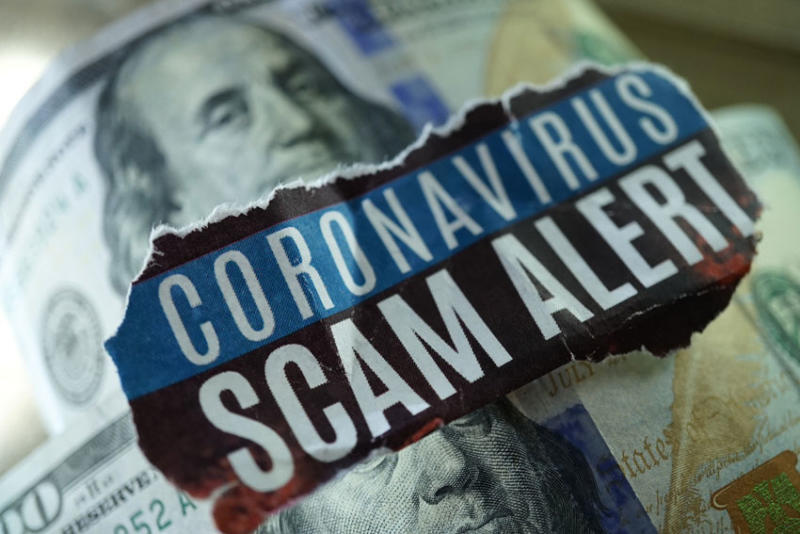Coronavirus Scams Spreading as Fast as the Virus Itself, FTC Warns
By Mark Hedin/Ethnic Media Services
Not only has the corona virus wrought havoc worldwide, it’s also become a new pretext for fraudsters trying to take advantage of people’s trust to steal their money. According to the United States Federal Trade Commission, COVID-19-related crimes are being reported by the thousands, have doubled in just the past week and are growing faster still.
The FTC has received more than 10,000 complaints so far this year, (https://tinyurl.com/FTC-coronavirusreports), with losses approaching $7 million and a median of more than $500. More than half of those reports arrived in just the past 10 days.
Complaints describe perpetrators claiming to represent the government or a business, and who often take advantage of travel and vacation-related reports about cancellations and refunds. Other complaints reported problems with online shopping and mobile texting.
The federal government agency is updating the numbers the exponential growth of coronavirus-related complaints at its Explore Data web page, and offers information on types of scams and how to avoid them at https://www.ftc.gov/coronavirus/ftc-in-action.
If you have been targeted by a fraudulent operation, please report it to the FTC: FTC.gov/complaint.
As a general rule, don’t click on links in emails that claim to be from the government or a bank, even if they look legitimate, and don’t respond to those emails. The criminals are good at copying the look of those institutions’ correspondence. It’s better to call the government agency or bank directly. But even there, be careful to find out the correct phone number on your own, and don’t trust the number in any unsolicited call or email.
Also, most phone calls trying to defraud people are “robocalls” — calls made by machines — so even though some are made by individual people, if you pick up a call and there’s no person on the other end of the line, just hang up.
Because the government has passed legislation offering various kinds of financial relief to consumers, some scammers are trying to take undue advantage of that, too. In one effort to combat this type of crime, the Small Business Administration is asking people to contact them directly, either by phone or at the sba.gov/coronavirus website to find out what kind of help is legitimately available.
Similarly, be wary of people or callers offering a fast-track to such financial help. And never give your Social Security, tax ID, bank account numbers or any other such highly personal information to someone you don’t know.
Even if you’ve received a check in the mail, proceed with caution. Not all “coronavirus relief” checks can be trusted. The FTC has a blog with advice about how to spot a bogus relief check.
In recent weeks, the FTC has had to notify numerous technology companies such as internet service providers(https://tinyurl.com/FTC-coronavirus-fraud-warning) that they are helping illegal telemarketing and “robocalls” involved with coronavirus-related scams.
Those companies included: VoIPMax, SipJoin Holding, Corp., iFly Communications, Third Rock Telecom, Bluetone Communications, LLC, VoIP Terminator, Inc., also known as BLMarketing, J2 Web Services, Inc., VoxBone US LLC and Comet Media, Inc.
“It’s never good business for VoIP (Voice Over Internet Protocols) providers and others to help telemarketers make illegal robocalls that scam people,” FTC Bureau of Consumer Protection Director Andrew Smith said. “But it’s especially bad when your company is helping telemarketers exploiting fears about the coronavirus to spread disinformation and perpetrate scams.”
Another company, Globex Telecom, is being prosecuted by the FTC for this kind of activity, the agency reports, as is? software provider James B. Christiano (unclear: is FTC also prosecuting the software provider? If so, see revised paragraph below). The Department of Justice is prosecuting two VoIP companies for “committing and conspiring to commit wire fraud by knowingly transmitting robocalls that impersonated federal government agencies.”
The FTC and the U.S. Food and Drug Administration have warned other companies about selling unapproved products that may be falsely claiming to be helpful in treating or curing COVID-19.
These include Gaia’s Whole Healing Essentials, LLC, Health Mastery Systems/Pure Plant Essentials, Homeomart Indibuy, Neuro XPE, FullerLifeC60, LLC, Halosense, Inc., JRB Enterprise Group Inc., Carahealth, Corona-Cure, Vital Silver, Quyinessence Aroatherapy Ltd., N-ergetics, GuruNanda, LLC, Vivify Holistic Clinic, Herbal Amy LLC and the Jim Bakker Show.
Although the FTC strongly recommends against communicating with ANY unknown person or business, the opposite is true when it comes to notifying friends and family to be careful. “Share these tips with your co-workers, family and social networks,” the agency says.


